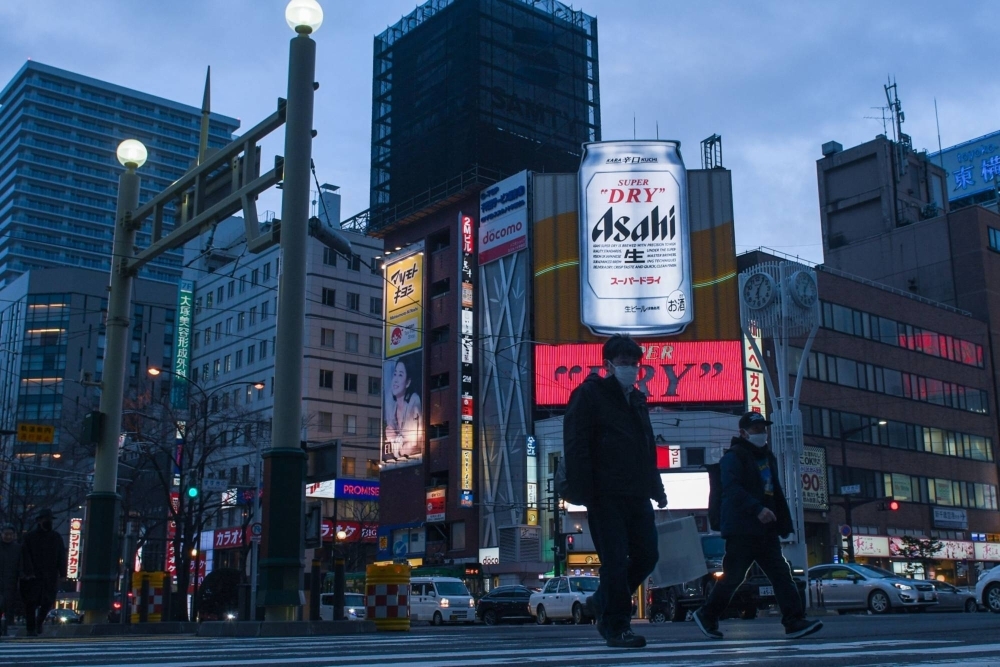Asahi to end use of Johnnys personalities in ads
Beverage giant distances itself amid scandal tied to talent agency
By Hana Mori — Tokyo, September 12, 2023
Asahi cuts ties with Johnny’s-affiliated stars in new ad strategy
Lead: A Corporate Pivot Over Reputation and Ethics
Tokyo — Asahi Group Holdings has announced it will cease using entertainers represented by Johnny & Associates in its advertisements, a decisive move following revelations of longstanding sexual abuse allegations tied to the agency’s late founder. The beverage company confirmed that it will no longer feature figures such as Junichi Okada, Toma Ikuta, and Sho Sakurai in its ad campaigns and has stated it will refrain from signing any new talent affiliated with Johnny’s. This shift comes amid growing public pressure and scrutiny over links between corporate advertising and reputational risk.
Asahi’s decision marks one of the most high-profile corporate responses to the scandal, signaling that major Japanese firms are rethinking brand associations and accountability. The change will affect media campaigns, endorsements, and future advertising strategies across multiple channels. It also places additional pressure on other companies to reassess their relationships with Johnny’s talents.
While there is no immediate financial figure tied to the termination of existing contracts, industry observers believe the move could ripple through the entertainment sector, impacting ad revenue, talent mobility, and branding strategies. The core question now is whether other large advertisers will follow suit — and whether Johnny’s can withstand the erosion of its influence in commercial media.
Why the Shift Holds Weight
This decision matters because it underscores how reputational risk and public accountability are reshaping the Japanese entertainment and advertising landscapes. When a major company like Asahi disassociates itself from a tainted brand, it signals to stakeholders — consumers, investors, and other firms — that morality and brand safety now weigh heavily in strategic decisions. The agency’s influence is no longer inviolable, and the narrative that fame always shields wrongdoing is being questioned.
The move also sheds light on how corporate alliances can tacitly enable abuse through silence and complicity. By publicly withdrawing support, Asahi forces the conversation beyond gossip and into the boardrooms of advertisers and agencies. The ramifications are broad: talent contracts may now include more stringent clauses regarding ethics, and advertisers may adopt more rigorous vetting processes.
Moreover, the public sees this as a moment of potential reckoning: if companies stop backing controversial figures, survivors and critics may feel emboldened to pursue lawsuits, public disclosures, or reforms. The choice to drop Johnny’s-associated talent is more than symbolic — it may shift power dynamics across the industry.
Voices and Repercussions
> “If we continue with our contracts, it would be as though we are condoning human rights violations.” > — Atsushi Katsuki, Asahi CEO, speaking about the decision to end collaborations with Johnny’s personalities :contentReference[oaicite:0]{index=0}
According to an AP report, Asahi’s move follows similar decisions by other major firms, including Japan Airlines and Nippon Life Insurance, which have also cut ties with Johnny’s-associated performers. :contentReference[oaicite:1]{index=1}
Critics warn that many artists tied to Johnny’s may find it difficult to pivot, due to the agency’s longstanding dominance in talent management and media access. However, with mounting pressure, insiders say that some contracts may be renegotiated or dissolved.
Historical Weight and Structural Challenges
Johnny & Associates, founded by Johnny Kitagawa in 1962, has long been one of Japan’s most powerful talent agencies, particularly for male idols. Over the decades, its control over media appearances, promotional strategies, and artist images built a near-monopoly in certain sectors of entertainment. Yet, behind the façade of pop stardom, allegations of sexual abuse and systemic silencing continually haunted the institution. Only recently has the public and media at large begun to press these issues with sustained scrutiny.
Kitagawa’s misconduct — spanning decades — was confirmed in investigations that followed his death in 2019, which prompted internal upheaval within the company. Many voices, once suppressed, now press for corporate and legal accountability. The Asahi decision comes against this backdrop of growing demands for reform in Japan’s entertainment industry.
The agency’s integrated structure — combining talent management, content production, and industry alliances — has made it difficult for artists to leave or for critics to challenge its dominance. That structural entanglement is now being tested by decisions like Asahi’s that cut commercial ties.
As other companies reassess their associations, the ripple effects might include contract renegotiations, public disclosures, and even new industry standards for agency oversight.
Closing the Chapter or Turning a Page?
Asahi’s move to end use of Johnny’s personalities in its ads marks a watershed in how corporate Japan addresses moral accountability. The action could encourage more firms to distance themselves from tainted brands — or pressure Johnny’s itself to change. But whether this leads to real transformation or merely symbolic distancing remains to be seen.
Design, Tags & Source
— **Font & Layout**: Use a legible serif or sans-serif typeface, with consistent spacing (1.5 line height) and margin balance.
— **Headers**: H1 for headline, H2 for subheadline and all major section headings, H3 for byline.
— **Keywords / Tags**: Asahi, Johnny’s, Japan, talent agency scandal, advertising, corporate ethics, brand risk
— **Source Link**: Asahi Japan Watch: Article on Asahi ending use of Johnny’s personalities
- 5 October 2025 Transfer gossip - October 10, 2025
- Blast at Tennessee military explosives plant - October 10, 2025
- Who are the Pink Ladies Anti migrant hotel protesters - October 10, 2025
